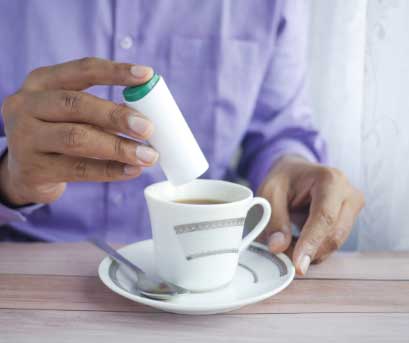One of the scariest diagnosis which people get, is that of diabetes. And yet it is extremely common with an estimated five million people in the UK are living with diabetes – an all-time high.
Navigating the complexities of Type 2 Diabetes, we delve into its roots, common symptoms, and how naturopathy offers a holistic approach to managing and preventing high blood sugar.
Type 2 Diabetes (TTDM) is characterised by high levels of insulin in your blood, which indicate the cells in your body are insulin resistant. TThe condition is influenced by both genetic and lifestyle factors.
Common Symptoms of Type 2 Diabetes:
While often silent, Type 2 Diabetes can manifest symptoms like increased thirst, frequent urination, and fatigue. Recurrent infections, longer healing times and weight loss. Regular blood sugar monitoring is essential, especially for those with risk factors.
Naturopathic Approaches to Blood Sugar Management:
Diving into naturopathic strategies, we explore the role of nutrition, herbal support, lifestyle changes, and supplements in maintaining optimal blood sugar levels naturally.
Naturopathic management of TTDM involves reducing blood sugar levels, lowering blood lipids and reduction of risk factors through weight loss, blood pressure reduction, lowering oxidative stress and more.
We will always need to include regular exercise suiting your lifestyle, as this increases insulin sensitivity, helps lower blood sugar levels and helps with other risk facors. Exercise also helps us manage any stress and anxiety associated with your diagnosis.
We will also need to build you an individualised dietary plan, though fair warning the research seems to be suggesting an advantage for lower carbohydrate vegetarian or vegan diets, so we mostly will be leaning in that direction. Good news is that research also shows that previous (mis)conceptions suggesting fruit intake should be avoided is in fact not true, and fruit can certainly be included – how many and which will be determined by how well you’re doing.
Herbal medicine can be of particular benefit, as research and experience have shown that they can lower blood sugar levels, increase insulin sensitivity and help manage risk factors.
Practical Takeaways:
Simple lifestyle changes, mindful eating, and regular check-ups are foundational to blood sugar control.
Increase your fibre intake through whole grains, nuts and seeds, fruit and vegetables and eating pulses, and make sure you add plenty of water. Include plenty of omega 3 rich foods.
For personalised guidance, consider scheduling an appointment with me 🙂



